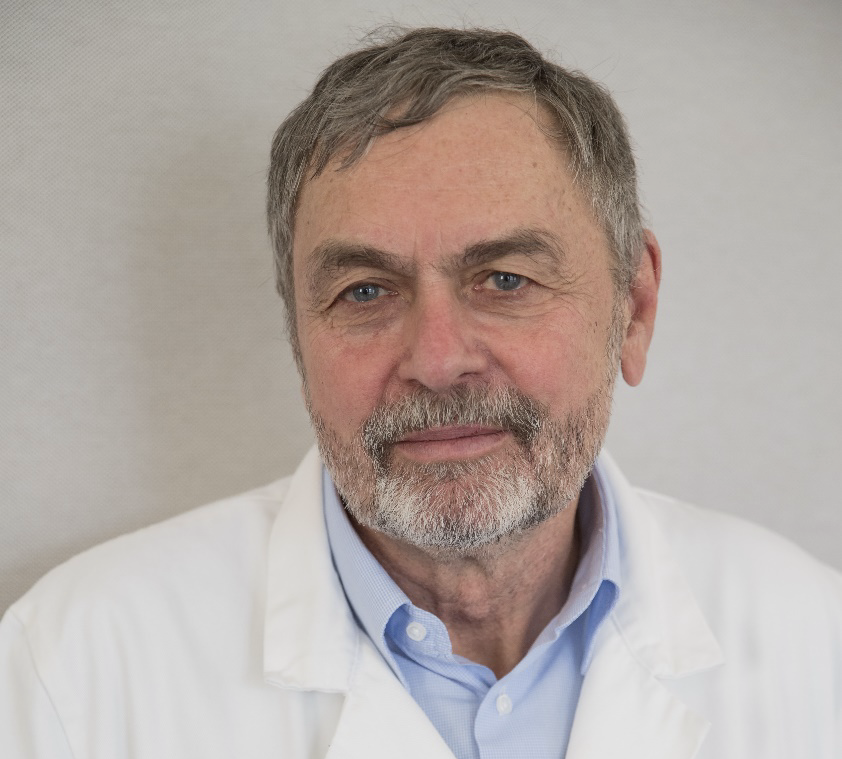The chemist and toxicologist Prof. Dr. Rainer Schmid headed the Department of Toxicology and Medication Analysis at Vienna General Hospital (AKH Wien), was a member of the National Anti-Doping Agency, and is involved in drug prevention in Vienna. Since 2017, Prof. Schmid has been the scientific director at Flowery Field. We discussed with Schmid:
- The hurdles of cannabis research,
- Existing results of clinical studies, and
- The effect of cannabis legalization from the age of 21 in Colorado.
In recent years, the German Techniker Krankenkasse (TK) has criticized the inadequate research status on cannabis. How do you assess the current data?
The accusation of insufficient clinical studies is therefore absurd. Due to the rigid formulation of UN drug conventions, cannabis has been stigmatized and subjected to the same restrictions as heroin. Cannabis was denied its medical benefits as a prohibited plant, and until recently, it was almost impossible worldwide to systematically cultivate cannabis in specific varieties based on scientific criteria for research and medicine, except for a few exceptions! However, it is particularly annoying that the report confuses insufficient study data with inefficacy in certain indications. There are numerous positive reports from doctors and patients. The absence of clinical studies in a specific indication does not imply that cannabis is ineffective.
What makes clinical studies on the effectiveness of the drug Herba Cannabis so challenging?
Until about a year ago in the USA, it was prohibited by national law to use a different cannabis variety for scientific studies, except for one randomly provided by a Southern state university. The composition of active ingredients in the cannabis plant varies significantly depending on the strain. Strains high in tetrahydrocannabinol (THC) are used very differently in medicine than strains low in THC and high in cannabidiol (CBD). The active ingredients of a medicinal plant cannot be forced into the study framework of synthetic monosubstances.
How do you see further development here?
Some cannabinoids can already be extracted and produced in purified form, which facilitates research and application. The effectiveness as a pain reliever, antiepileptic, appetite stimulant, and oncological preparation for cancer therapy is supported by clinical studies. One can imagine the current state of knowledge in pharmacological research if similar conditions had applied to Herba Cannabis as for the medical use of comparable medicinal plants. It is clear that we need more clinical studies to explore the medical indications of the individual substances of the cannabis plant. Despite increasingly challenging legal conditions, new studies are now being injected worldwide.
An often-raised accusation is that cannabis triggers psychosis.
The fact is that only individuals predisposed to mental illness can be affected. When taken in therapeutic doses, cannabis does not disrupt physiological functions or damage organs.
Is there an increase in cannabis-associated mental health issues among adolescents?
There are no clear epidemiological data on this. vor. From what I’ve learned from the Department of Child and Adolescent Psychology at AKH, there is an increase in cannabis-associated mental health issues among adolescents in the form of anxiety disorders, panic attacks, and psychotic events. However, statistical figures are lacking. The increase is primarily due to higher prevalence of consumption and more potent cannabis, meaning very THC-rich strains are circulating and consumed in very high doses without moderation.
Let’s turn to the USA. Washington DC and Colorado legalized cannabis for adults aged 21 and over in 2014,, and more states have since joined. Are there already data on this?
Legalization in Colorado even led to declining prevalence rates among teenagers. So far, no expert has confirmed to me that there is an increase in cannabis-associated schizophrenia. There is no clear causality between an increase in schizophrenia and cannabis—despite claims to the contrary. If there were scientifically proven increase, there would be no global trend towards legalization.
Has the current cannabis drug policy failed?
From the perspective of many judges, law enforcement officers, and substance abuse experts, the cannabis prohibition has failed, and the desired success has not been achieved. About 30 percent of Austrians consume cannabis in their lifetime—despite the ban. Curiosity is the key factor in trying substances. Illegalization leads to taboos. For example, fewer young people consume cannabis in the Netherlands than in Germany. A key factor is a rational approach to cannabis. Canada has completely legalized cannabis for adults and tightened youth protection. The Netherlands, Czech Republic, and Portugal have had positive experiences with drug decriminalization. Education and a rational approach to cannabis are key factors, while illegalization and prohibition policies only enforce taboos.

